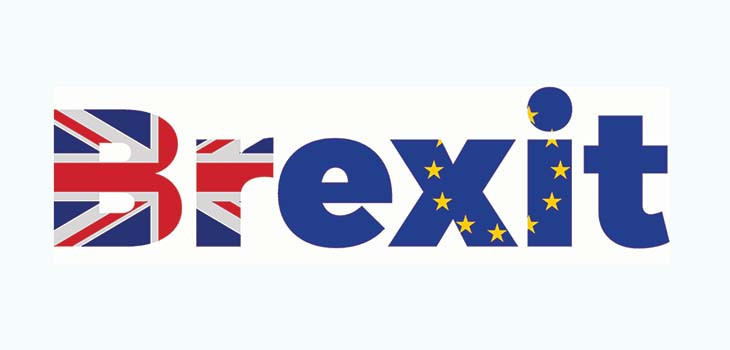
It’s six years since the referendum that set the clock ticking on the UK’s departure from the European Union, and we are moving towards three years since the prime minister appealed to votes to ‘get it done’. Now Boris Johnson has resigned the next prime minster has the opportunity to repair the damage that has been done to the UK’s reputation in law.
While we duly left the EU at the end of 2020 following the transition period, it is difficult to resist the idea that we remain in transition. There can be no doubt that change will be a constant as different governments take different attitudes towards the relationship. As lawyers, despite the noise, we might conclude that with the close trading relationship between the UK and the EU there will always be a close relationship in law, however great the political divide.
The current noise about that relationship circulates around the Northern Ireland Protocol. The Northern Ireland Protocol Bill proposes to give the government the statutory entitlement to break the agreements recorded in the Bill. The government release proffers that the Bill ‘will allow the government to address the practical problems the Protocol has created in Northern Ireland’ in order to ‘uphold the Good Friday Agreement’ and ‘break the political stalemate’ in Northern Ireland. The government suggests the unilateral step is taken under Art 16, allowing it to take safeguard measures that are ‘strictly necessary’.
The Bill has been met with strong reaction from the EU who accuse the government of bad faith and breaching international law. In a surprising admission the government accepts it is proposing to break international law but says this is in the national interest. This might reflect the concept of ‘British exceptionalism’ which has been the mark of this government. In response, the EU proposes to restart ‘infringement proceedings’ under Art 12(4) in front of the European Court of Justice. These have been ongoing since March 2021 in relation to two other breaches of which the UK is accused.
It remains to be seen if the Bill passes through Parliament unscathed in the current political turmoil but in the meantime the Bill, the intent behind it and the consequential breach of international law and obligations has undoubtedly raised questions about the UK’s commitment to the international rule of law. That rule of law is largely based on trust between nations. The absence of that trust endorses others to follow suit.
For lawyers, one major concern is the reputation of the jurisdiction particularly at a time of uncertainty. Despite some early hopes, the UK’s application to accede to the Lugano Convention on the Recognition of Judgments (in replacement of the EU acquis) remains formally unanswered. However, outright French opposition and others’ indifference led to the EU Commission in June 2021 saying the EU was not in a position to agree accession. Political reality probably suggests the current dispute with the EU has put paid to accession any time soon. Let us hope a new government might throw accession into a new relationship. Without the Lugano Convention, many may fall back on the Hague Convention on Choice of Court Agreements but this needs specific provision in the contract and it has its limits. Many may turn to arbitration which is enforceable under the New York Convention.
For enforcement of judgments given before our departure, the position under the Brussels Regulation and Lugano is developing a degree of certainty in EU and EFTA national courts but what is less clear is where proceedings were commenced before departure but judgment is given after. EU courts are starting to grapple with this. This issue has, for instance, been debated in a number of cases in the Swiss cantonal courts with differing results.
Some had hoped for the reinstatement of bi-lateral agreements for recognition and enforcement, which the UK had with many EU jurisdictions before accession, such as the 1967 agreement with the Netherlands. But there remains considerable doubt here and in the Netherlands whether the 1967 Convention, along with many other European bi-laterals, survived when we entered into the 1968 Brussels Convention. Replacement agreements with EU countries would, in the main, now have to come from the EU centrally, and that is highly unlikely to be forthcoming.
These issues add to the uncertainty in the short term, particularly with the pandemic and invasion of Ukraine, but we may speculate on the long-term picture. The recently published LCIA 2021 Annual Casework Report indicates a sharp decline in arbitrations administered by the LCIA, London’s main international arbitration institution. This may be short term, we hope.
The recent Portland Report on the London Commercial Court has, however, revealed an increase in business albeit with a decrease in business from mainland Europe being offset by fully UK domestic claims and to some extent claims with parties from the US.
Before events in Ukraine, Russian business maintained a strong presence within the statistics but that will certainly fall away.
It is far too early to determine the long-term effect of all that has happened but we wish for some stabilisation under Johnson’s replacement and the return of confidence. In the meantime, practitioners, our representatives and the judiciary continue, as one, to defend the rule of law on a domestic and international basis and to sell the jurisdiction as the jurisdiction of choice.
David Greene, NLJ consultant editor, senior partner, head of group action litigation at Edwin Coe LLP (@LitLawyer;www.edwincoe.com).










